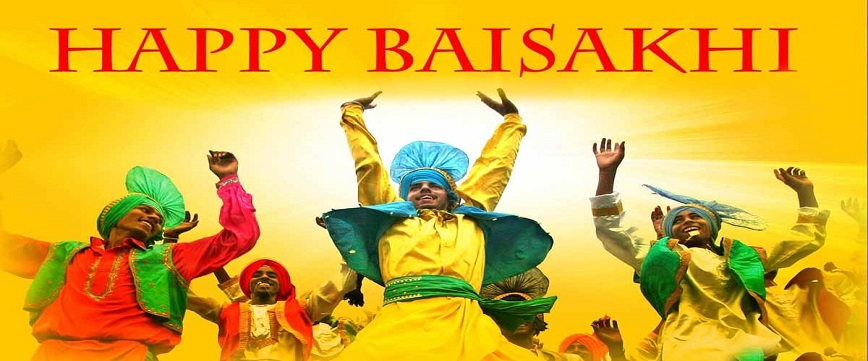Baisakhi, also known as Vaisakhi, marks the beginning of the harvest season and the onset of spring in India. It is a festival of immense joy, especially for farmers, as it symbolizes gratitude for a bountiful harvest. Predominantly celebrated in Punjab and Haryana, Baisakhi is also observed under different names across India Pohela Boishakh in West Bengal, Bohag Bihu in Assam, Puthandu in Tamil Nadu, Ugadi in Andhra Pradesh and Karnataka, Vishu ...
Baisakhi, also known as Vaisakhi, marks the beginning of the harvest season and the onset of spring in India. It is a festival of immense joy, especially for farmers, as it symbolizes gratitude for a bountiful harvest. Predominantly celebrated in Punjab and Haryana, Baisakhi is also observed under different names across India Pohela Boishakh in West Bengal, Bohag Bihu in Assam, Puthandu in Tamil Nadu, Ugadi in Andhra Pradesh and Karnataka, Vishu in Kerala, and Maha Vishuva Sankranti in Odisha.
History of Baisakhi
Baisakhi holds great historical and spiritual importance in Sikhism. On this day in 1699, the tenth Sikh Guru, Guru Gobind Singh Ji, founded the Khalsa Panth the Brotherhood of Saint Soldiers at Anandpur Sahib. He inspired the Sikhs to rise against oppression and uphold righteousness, courage, and equality.
The story of Baisakhi also traces back to Guru Tegh Bahadur Ji, who was martyred for protecting religious freedom. After his sacrifice, Guru Gobind Singh Ji infused new spirit into the Sikh community by initiating the Panj Pyare (Five Beloved Ones) and creating the Khalsa tradition a turning point in Sikh history.
Significance of Baisakhi
Baisakhi is both a religious and agricultural festival. It marks the Sikh New Year and commemorates the formation of the Khalsa Panth. For farmers, it’s a time to celebrate their hard work and the success of their harvest.
The festival also carries a somber remembrance the Jallianwala Bagh massacre in Amritsar (1919) occurred on Baisakhi day, reminding people of India’s painful struggle for freedom.
Baisakhi Celebration
The day begins with devotees taking a holy dip in rivers or ponds, followed by prayers at Gurudwaras like the Golden Temple (Amritsar), Anandpur Sahib, and Talwandi Sabo. Special Karah Prasad and Langar Seva (community meals) are offered to all.
The grand Nagar Kirtan procession is a major highlight led by the Panj Pyare, followed by devotees singing hymns, displaying martial arts, and spreading the message of peace. The streets come alive with colors, music, and joy as people chant Jatta Aayi Baisakhi!
Traditional food, folk dances like Bhangra and Gidda, and festive fairs make the celebration even more vibrant across Punjab and Haryana.
Date of Baisakhi Festival
Baisakhi is traditionally celebrated every year on 13th April and occasionally on 14th April, marking the first day of the Vaisakh month in the Sikh and Hindu calendars.
Story of Baisakhi
During the historic congregation of 1699 at Anandpur Sahib, Guru Gobind Singh Ji called upon the devotees for a great sacrifice. Five men came forward, known as the Panj Pyare, symbolizing unity and devotion. They were baptized with Amrit (holy nectar) and became the first Khalsa. Guru Gobind Singh Ji himself took Amrit from them, showing equality among all.
The Khalsa was instructed to follow the Five K’s Kesh (uncut hair), Kanga (comb), Kara (steel bracelet), Kirpan (sword), and Kachha (shorts). This act established the Sikh identity and marked a new era of courage and brotherhood.
Baisakhi Wishes
• May Waheguru bless you with growth, health, and peace on this festival of harvest. Celebrate Baisakhi with love and joy!
• On this Vaisakhi, may your life be filled with new happiness, new beginnings, and endless blessings. Happy Baisakhi!
• May this Baisakhi bring prosperity, success, and cheer to your home and heart. Waheguru Ji Ka Khalsa, Waheguru Ji Ki Fateh!
• Wishing you and your family a joyous Baisakhi full of positivity and togetherness.
• May you shine as bright as the sun and be as sweet as honey. Happy Baisakhi!
Baisakhi is a festival that beautifully combines faith, gratitude, and celebration reminding everyone of courage, unity, and devotion.





